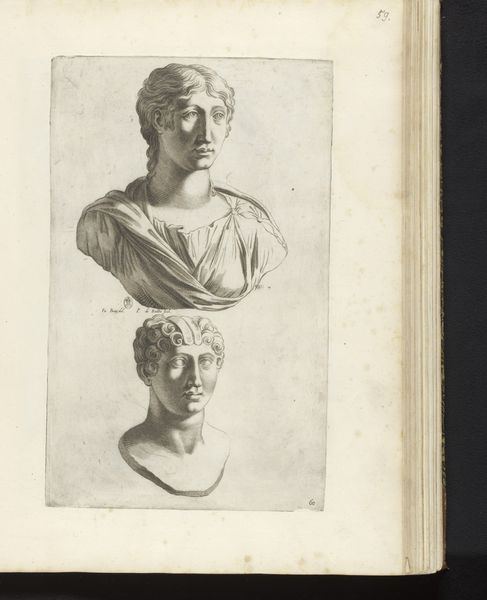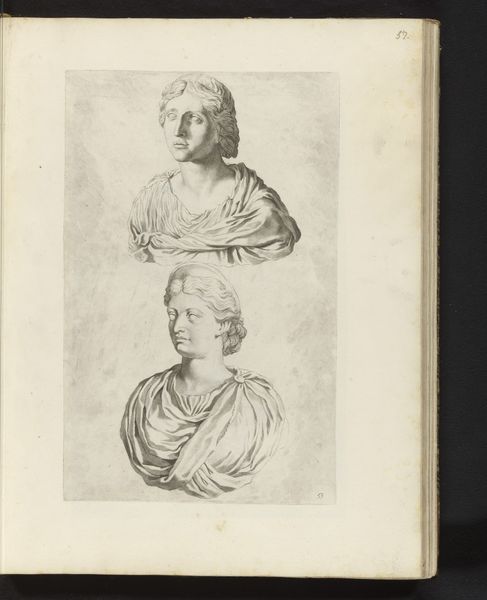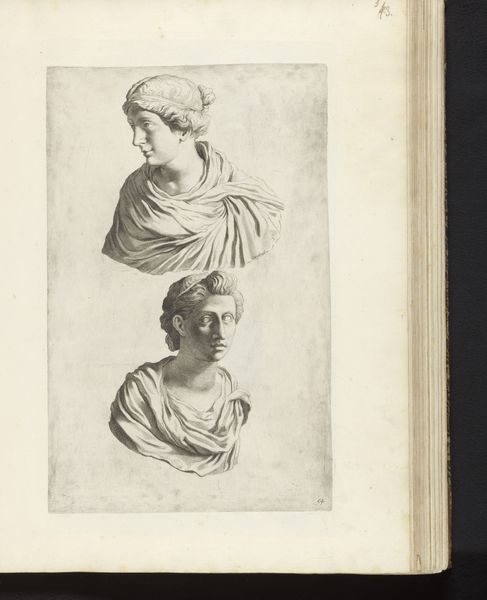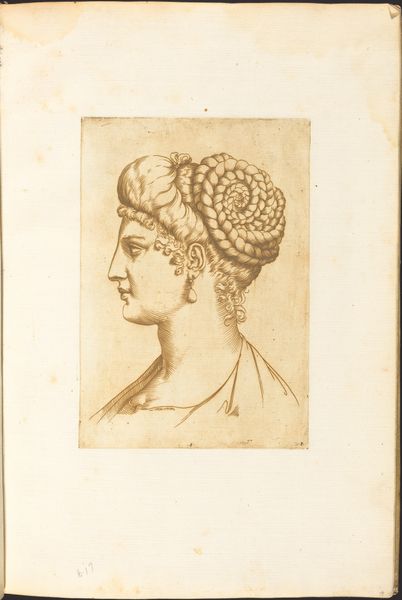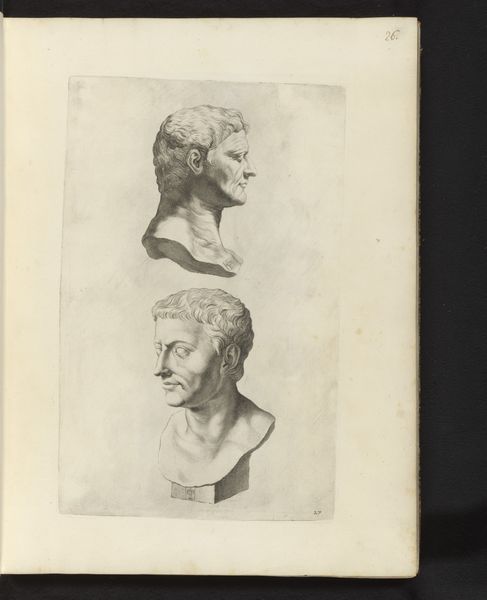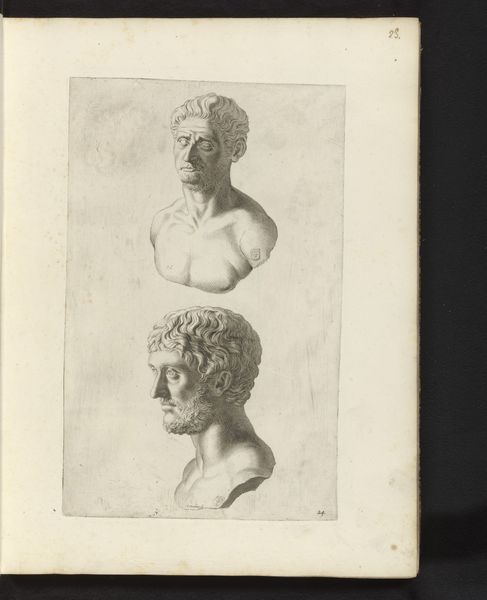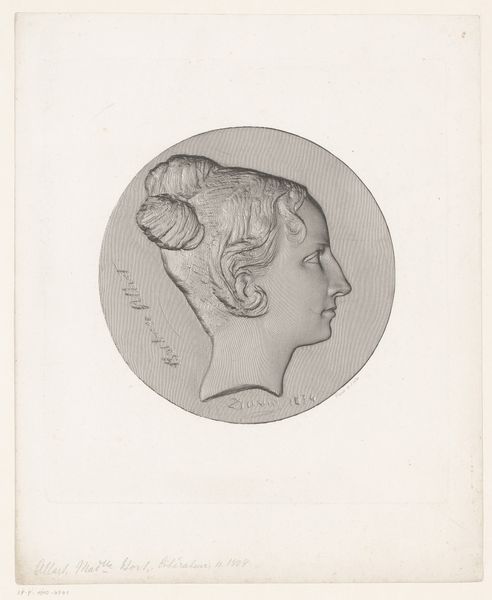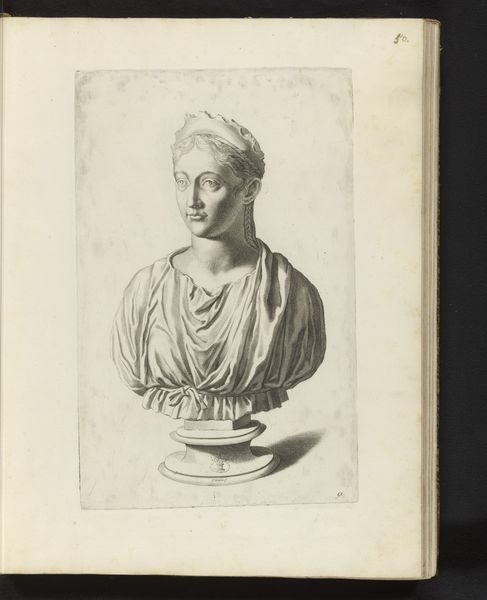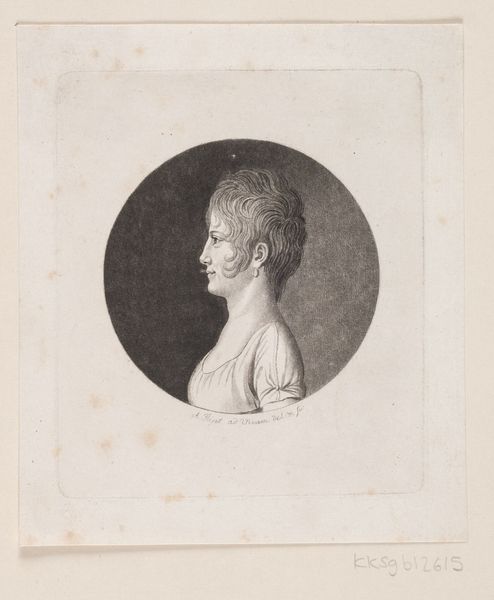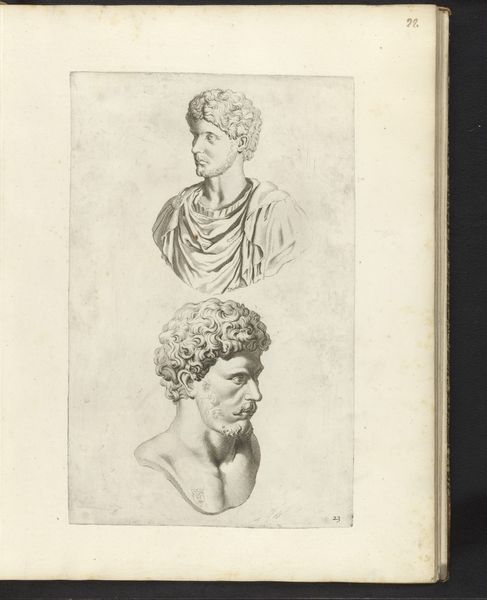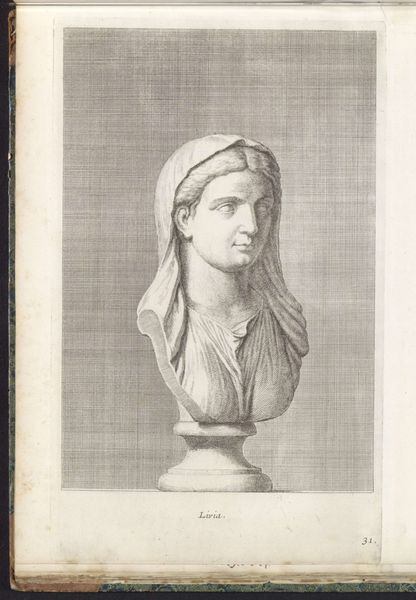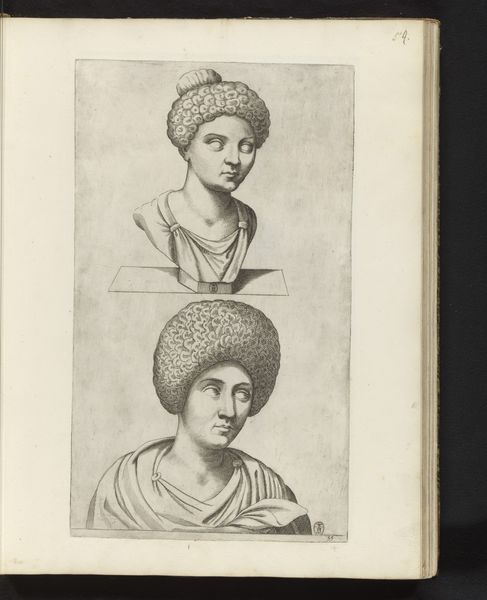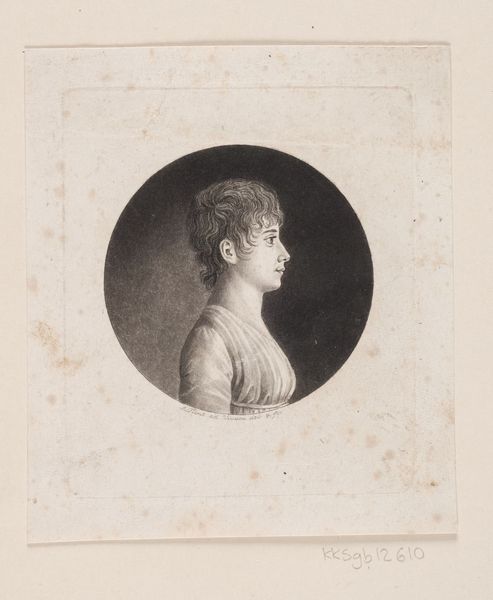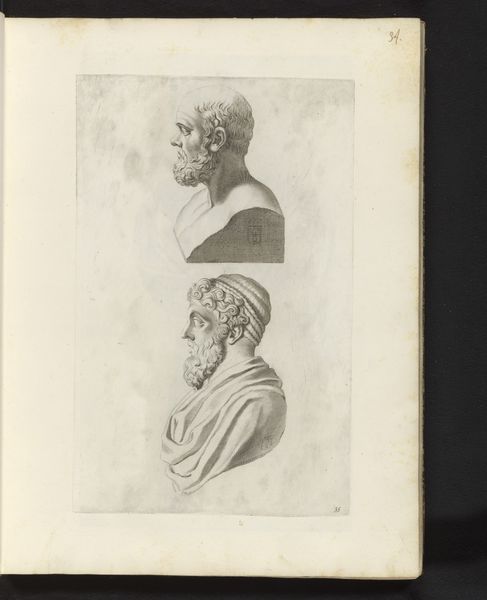
drawing, pencil
#
portrait
#
pencil drawn
#
drawing
#
pencil sketch
#
classical-realism
#
figuration
#
ancient-mediterranean
#
pencil
#
line
#
history-painting
#
realism
Dimensions: height 412 mm, width 238 mm
Copyright: Rijks Museum: Open Domain
Editor: This drawing, "Twee portretbustes van Romeinse vrouwen," from sometime between 1636 and 1647 by Theodor Matham, is intriguing. Two Roman women, rendered in pencil, gaze back at us across centuries. What strikes you about how Matham chose to depict these historical figures? Curator: Note how Matham uses line and shading to evoke the texture and form of classical sculpture. Even in a drawing, these women carry the weight of history, don't they? They become symbols of an idealized past, influencing notions of beauty and power even today. Consider how the artist meticulously renders their hair and drapery; what cultural associations might be embedded in these details? Editor: I hadn’t considered the impact of details like hair and drapery. Does Matham imbue the image with symbolism beyond a simple historical reference? Curator: Precisely. The act of recreating classical forms in the 17th century was a statement. It links Matham's present with the perceived glory of Rome, inviting viewers to contemplate their own place in the grand sweep of history. And these women, in their idealized form, they aren't simply portraits; they become vessels carrying the values of a bygone era. Editor: So, it's not just about what is depicted, but what those images represent across time? Curator: Absolutely. The enduring appeal of classical imagery speaks to our collective fascination with the past, and how it continues to shape our present understanding of ourselves and the world around us. Editor: I’ll never look at a classical drawing the same way again. Thank you! Curator: A pleasure to unpack the many cultural associations embedded in them!
Comments
No comments
Be the first to comment and join the conversation on the ultimate creative platform.
